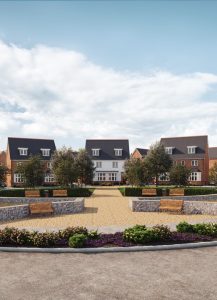The Active Building Centre Research Programme wants to determine the social well-being benefits from living in low and zero carbon homes. It is vital, if we are to achieve net zero carbon, that we fully understand how low carbon technologies impact behaviours and daily practices of residents in existing homes and the associated behaviour changes, adaptations, and motivations behind moving to a low emission home. The team has developed a well-being assessment framework to capture potential social, well-being, financial and health improvements.
The research is looking at the ways in which low carbon buildings modify occupant energy behaviours and practices, and potentially benefit occupants both financially and socially. The Active Building Centre Research Programme are not only interested in the benefits of living in a low carbon home, but they are also measuring the potential impact on entire communities.
The research is feeding into future policy and design to ensure that people’s needs are at the heart of this changing landscape.
This long-term, evidence-based research is being conducted via a series of interviews, surveys, and diaries over the course of the project at different case study sites around south Wales. These strands are looking at both newly built low and zero carbon homes, and existing homes being retrofitted with carbon reducing technologies. These two complementary research strands are led by Cardiff and Swansea Universities.
Dr Kate O’Sullivan and Dr Fiona Shirani of Cardiff University will be leading our study of resident perspectives ‘Living Well in Low Carbon Homes’. This research will explore how people experience life in a low carbon home, including dealing with new technologies and ways of paying for energy, whether the homes influence lifestyles and energy use as well as broader experiences of life in a new community. The Living Well in Low Carbon Homes team will interview residents on multiple occasions to explore how their experiences may change and develop over time.
Dr Deborah Morgan and Dr Carol Maddock, researchers in the Centre for Innovative Ageing at Swansea University will be exploring whether living in a new low carbon home brings health, social and financial well-being benefits. The team are distributing questionnaires targeting new and future occupants of low emissions homes, with repeated visits between now and 2022 used to quantify benefits from living in low emissions homes and communities.
The Active Building Centre Research Programme has also established a Healthy Aging expert advisory group and carried out studies on health, fuel poverty, social and wellbeing benefits to complement academic research activities.


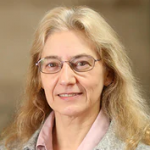 Karen Henwood is a Professor in Cardiff University’s School of Social Sciences and its Understanding Risk Research Group. She works on how it is possible for people to meet the challenges posed to themselves and society by the dynamics of environmental risk and socio-cultural change, including infrastructure and technology transitions in energy systems.
Karen Henwood is a Professor in Cardiff University’s School of Social Sciences and its Understanding Risk Research Group. She works on how it is possible for people to meet the challenges posed to themselves and society by the dynamics of environmental risk and socio-cultural change, including infrastructure and technology transitions in energy systems. Professor Nick Pidgeon is Director of the Understanding Risk Research Group within the School of Psychology at Cardiff University. His research looks at public attitudes, risk perception and public engagement with environmental risks and energy technologies and infrastructures.
Professor Nick Pidgeon is Director of the Understanding Risk Research Group within the School of Psychology at Cardiff University. His research looks at public attitudes, risk perception and public engagement with environmental risks and energy technologies and infrastructures. Charles is Associate Professor in Gerontology at the Centre for Innovative Ageing (CIA) at Swansea University. He has a particular interest in improving public policy and practice around the built environment and transportation taking into account an ageing population, requiring sustainable and environmental contexts, including road user safety in later life, giving-up driving and creating age friendly neighbourhoods and communities.
Charles is Associate Professor in Gerontology at the Centre for Innovative Ageing (CIA) at Swansea University. He has a particular interest in improving public policy and practice around the built environment and transportation taking into account an ageing population, requiring sustainable and environmental contexts, including road user safety in later life, giving-up driving and creating age friendly neighbourhoods and communities. Kate’s research interests focus on the interplay between environmental, spatial and energy justice – how the sustainable and equitable use of natural resources is influenced by various economic, political and socio-spatial structures and how this manifests geographically. Research in this area is increasingly important as decarbonisation progresses and opportunities are presented that enable emerging systems and structures become more just. Her PhD research (2015-20) has highlighted the connections between political power, recognition, socio-economic development and the distribution of costs and benefits emerging from low carbon transition.
Kate’s research interests focus on the interplay between environmental, spatial and energy justice – how the sustainable and equitable use of natural resources is influenced by various economic, political and socio-spatial structures and how this manifests geographically. Research in this area is increasingly important as decarbonisation progresses and opportunities are presented that enable emerging systems and structures become more just. Her PhD research (2015-20) has highlighted the connections between political power, recognition, socio-economic development and the distribution of costs and benefits emerging from low carbon transition.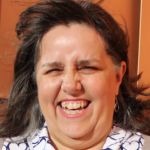 Deborah is a senior researcher in the Centre for Innovative Ageing at Swansea University and has a background in social gerontology, sociology and health and social care. Deborah’s PhD focused on transitions in loneliness and social isolation in later life. Her research interests include older adults, loneliness and social isolation health/social inequalities, disability and chronic illness, and new ageing populations. Deborah has previously worked on projects related to housing adaptations and Motability.
Deborah is a senior researcher in the Centre for Innovative Ageing at Swansea University and has a background in social gerontology, sociology and health and social care. Deborah’s PhD focused on transitions in loneliness and social isolation in later life. Her research interests include older adults, loneliness and social isolation health/social inequalities, disability and chronic illness, and new ageing populations. Deborah has previously worked on projects related to housing adaptations and Motability.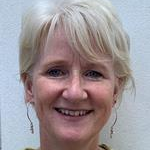 Carol is a research officer based in the Centre for Innovative Ageing (CIA) and is currently working on the Active Building Centre Research Programme to examine the impact of Active Builds on older people.
Carol is a research officer based in the Centre for Innovative Ageing (CIA) and is currently working on the Active Building Centre Research Programme to examine the impact of Active Builds on older people.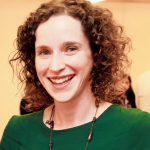 Fiona is a Research Associate based in the School of Social Sciences at Cardiff University. Her research interests include how life events and relationships to others impact everyday energy use, as well as experiences of energy vulnerability. She has worked on several qualitative longitudinal projects and specialises in this methodological approach.
Fiona is a Research Associate based in the School of Social Sciences at Cardiff University. Her research interests include how life events and relationships to others impact everyday energy use, as well as experiences of energy vulnerability. She has worked on several qualitative longitudinal projects and specialises in this methodological approach. Rachel is a Research Associate based in the School of Psychology at Cardiff University. Her background is in sociology, and science and technology studies (STS). Her research interests include how people and technologies interact, and how this affects their health and wellbeing. She has worked on several qualitative and mixed methods research projects, and specialises in ethnographic research methods.
Rachel is a Research Associate based in the School of Psychology at Cardiff University. Her background is in sociology, and science and technology studies (STS). Her research interests include how people and technologies interact, and how this affects their health and wellbeing. She has worked on several qualitative and mixed methods research projects, and specialises in ethnographic research methods.